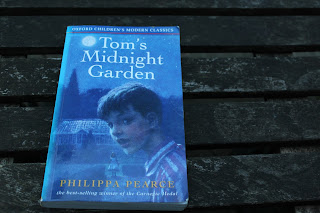This is an idiosyncratic list of the books that I have enjoyed most or found most useful, this year. The complete list is here. This post concerns the personal reading list. At a later date, I may post about the best read alouds. Books which have not reached this post are generally still a worthwhile read. Books where I gave up, and there were a few, didn't reach my personal list.
Links are to my reviews.
Christian Books
Links are to my reviews.
Christian Books
- JC Ryle's Expository Thoughts on the Gospels. This are helpful, clear and applied. Each section is short and so it isn't too difficult to fit in a section per day.
- Fitting in with this, I have recently read Iain Murray's biography of Ryle: Prepared to stand alone. This is thought provoking. Ryle's life wasn't easy in many ways. It is interesting to contrast the views of Ryle on separation with those of his contemporary, CH Spurgeon.
- His love endures for ever is a much more modern book, recommended by my co-leader in the home education group. This book is about God's love and has some awe-inspiring thoughts about how love is defined by God's love rather than by our definitions.
Education
- Deconstructing Penguins:Parents, Kids and the Bond of Reading. This has been my "go to" book for preparing for the book club.
- Teaching from Rest is a book that I was reluctant to read. It is written by Sarah Mackenzie whose Read Aloud Revival podcasts I enjoy but she is a Roman Catholic and I wasn't sure how this would affect her views on home education. Yes, she does quote RC theologians but the nitty-gritty of the home education advice is excellent and there is plenty for me to implement. An 80% full rather than a 120% full timetable would be a start!
- Mathematical Mindsets gave me plenty of food for thought although how to implement the ideas is more challenging. It has certainly made me think more about the way that my children learn maths.
Children's Books
These mainly been books that I have preread for the book club.
- Number the stars is historical fiction about how the Jews escaped from Denmark in the Second World War.
- The family with two front doors is another book about Jewish people, this time in prewar Poland.
- Marie Durand -a biography of a Huguenot prisonner.
Fiction
- Bleak House was a reread and I appreciated the extensive foreshadowing, in this book, on a reread and was, again, left puzzled by John Jarndyce.
Over the next month, I hope to post about my lack of success with reading lists and some vague plans for reading next year. Please let me know about books that you would recommend for me to read, next year.
If you enjoyed this post you may like to follow Delivering Grace by Google Friend Connect, G+,Facebook, Pinterest, Instagram or e-mail.
If you enjoyed this post you may like to follow Delivering Grace by Google Friend Connect, G+,Facebook, Pinterest, Instagram or e-mail.













